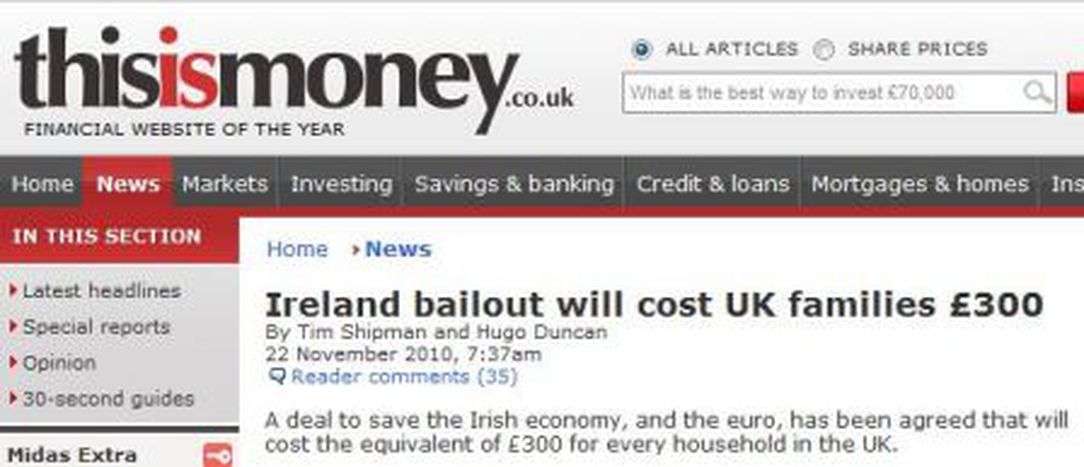
European taxpayers are going to pay to bail out Ireland... Not
Published on
"British taxpayers face a multimillion pound bill to help bail out Ireland" (The Guardian)
Once again the presentation in the media of the financial rescue package of a Eurozone country is plainly wrong. The so called "bail out" does not consist in a gift of capital to Ireland, and taxpayers are most likely not to pay anything as a consequence.
The problem faced by Ireland is that due to a lack of trust of investors in Ireland's ability to repay its debts, the current interest rate investorswould demand on new Irish bonds are prohibitive (around 10%). What other EU countries are going to do is to borrow money themselves at a low rate because investors can trust them to repay, and lend it to Ireland with a small premium. The final rate of interest on the bail-out money is likely to be around 5% for Ireland.
Where are the EU taxpayers here? Well in the most (most) likely scenario where Ireland repays its debt to other EU countries, taxpayers are not going to pay anything. On the contrary, countries lending money to Ireland will get their money back with a premium! Saying that EU taxpayers are going to pay for billions of euros given to Ireland is just wrong. It is only in the very unlikely scenario where Ireland would be unable to repay this loan that it would default. In this situation, only a part of the total loan would have to be written off and paid by EU taxpayers. So under no circumstances are EU taxpayers going to pay for the 70 billions lended to Ireland. Unfortunately such a bland truth does not attract readers and viewers.
Where could you read such nonsense? The Guardian, The Daily Telegraph, The Daily Express
To be exact, there is however an indirect cost to the bail out, by taking money on the bond market, it may create a "crowding out" of investors. The additional demand of money on the bond market may lead to an increase of its cost: the interest rate. As a consequence, all EU countries may well have to pay higher rates. This risk is however very limited in the case of small bail out. The Irish bail out is very small in absolute term given the size of the Irish economy (the Irish GDP represents only 1.4% of the EU GDP). A crowding out of investors is therefore unlikely in the case of the Irish bail out.



